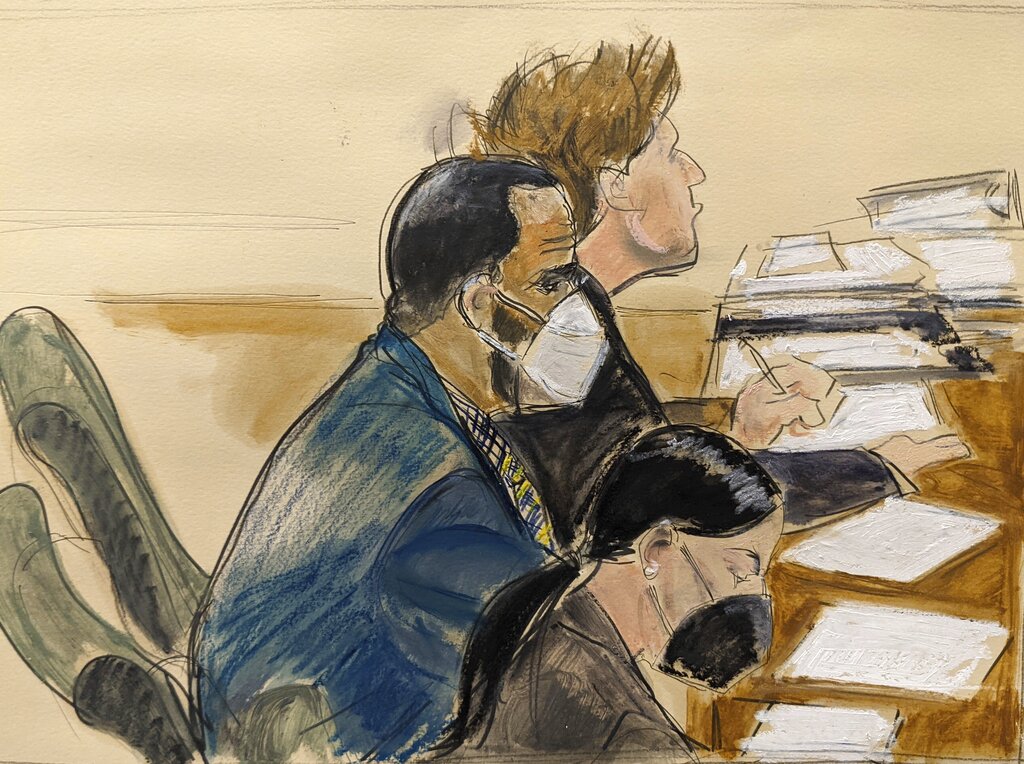
By JULIAN WATSON
The U.S court room in downtown Brooklyn stirs in quiet tension. It begins to get packed as media and the public file in to witness the end of R&B star Robert Kelly’s trial on racketeering and sexual assault charges. All individuals had their cell phones checked and confiscated by security.
It’s Thursday. The prosecutor, Elizabeth Geddes, starts off by informing the jury about three women that the defendant, Kelly, manipulated and coerced into illegal sexual activity involving minors. “Defendant filmed the minor of age 16 in the performance of sexual acts,” said Geddes. “Defendant utilized Cannon Video Camera and iPhone (as seen in exhibit 409) to record sexual acts performed between the defendant and Jeronda.”
The screen in the “overflow” room, where all trial visitors were sitting, showed images of evidence that the government has compiled against Kelly. Geddes dove head on into her presentation.
Geddes presented information showing that the old iPhone that Kelly had at the time, a 3GS, was capable of recording videos.
Regarding Jeronda, “threats of serious harm and the gain of sexual labor and services were received from the victim,” Geddes continued.
The prosecutor asserted: In a hotel room, Jeronda had been sitting by herself on her phone for some time. The defendant, Kelly, walked in and said nothing to her. Upon feeling he was being ignored, he grabbed Jeronda, choking her, hitting her and spitting on her. He chastised her for not greeting him and standing up and at attention upon his arrival. He further directed her to perform oral sex upon him. The prosecutor said the government had obtained the t-shirt Jeronda used to wipe the semen from her face on. Jeronda, Geddes said, had been punished for “failing Kelly’s cardinal rule,” which was to acknowledge his presence upon entering a room. Jeronda had to spend the next six months studying and “soaking in” Kelly’s rules. If she did not do as told, word for word, she was punished with physical abuse. Jeronda eventually approached attorney Kourtney Wilson on September 3, 2010, and was told to keep a journal of her encounters with Kelly.
Geddes declared that victim Jane was 17 years old and the aspiring singer had been coerced into leaving her home and to travel to Los Angeles, and was then manipulated into having sex with Kelly. He sent her text messages of false promises, saying he would set up performances for her. But he would only allow her to audition for him after he had had sexual intercourse with her. Kelly at the time was 48.
Jane had thus been compelled into activities that were against the federal Racketeering Act 8, Geddes stated. According to the law, Kelly was required to inform her of any sexual diseases or infections he’d had before intercourse. Kelly at the time had been aware that he had contracted genital herpes, which his personal doctor had told him was incurable and that he needed to inform each and every sexual partner before sex was engaged in.
Protection was strongly encouraged. Mr Kelly did not inform Jane, and she contracted genital herpes later. There are four elements to this state violation and Kelly broke all 4, Gedddes declared. The defendant knew he had genital herpes; he did not tell Jane; he exposed himself sexually and unprotected.
According to experts who have studied predatorial behavior, Kelly had used coercion, indoctrination, isolation, intimidation and economic threats, said Geddes.
Kelly had isolated not only Jane, but all the other presented victims, Geddes said. He has plead not guilty to all charges.
Kelly’s long trial is finishing. And he is set to be tried in two other states as well, with 14 total charges of racketeering.
Geddes finished her six-hour argument with final words: “Convict him. He is a predator”

Leave a Reply
You must be logged in to post a comment.